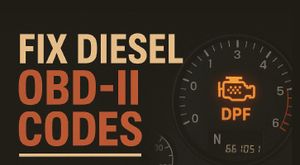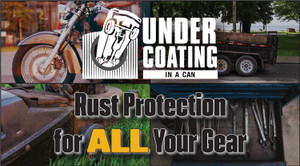Understanding Industrial Gear Lubricants
By on Apr 11 2016

Industrial vs. Automotive Oils
Not all lubricants are created equal. And just as you wouldn't want to mix up, say, tanning oil with grease, you don't want to mix up your automotive lubricants with your industrial lubricants.
But why?
When determining the proper lubricant for your particular application, you might already know that proper viscosity is the most important attribute to achieve adequate lubrication. But there are various oils with similar viscosity for example, while an SAE 90 gear oil sounds like it'd be thicker than SAE 50 engine oil, they are actually the same viscosity.
But just because they are the same viscosity, it doesn't mean you can substitute them willy-nilly. Tanning oil might smell like coconuts, after all, but that doesn't mean that I'm going to bake vegan muffins with it, you know? Because even though two oils might be mistaken as being for similar purposes (in terms of viscosity or delicious coconut-y smell), it's their composition which makes them different and best for certain tasks. Coconut oil is superior in muffins while your Banana Boat will serve you much better on the beach.
The additive make-up within each type of lubricant accounts for the major difference between industrial and automotive types. While both engine oils and gear oils have anti-wear additives, and are required to lubricate, cool, and protect, they do so in different environments.
Industrial gear lubricants are exposed to the rigors of industry: high-pressure, high-heat environments with frequent exposure to contaminants, such as dirt and water. The high pressure, in particular, requires a lubricant that will provide an adequate level of film thickness between the interacting gear surfaces while operating. Gear oils need to be able to withstand these conditions while providing proper lubrication for smooth-running machines.
Types of Industrial Gear Lubricants
The additives in the industrial gear oil determine the lubricant's general category and affect the qualities and performance of the lubricant in question. Petroleum Service Company breaks their industrial gear lubricants into the following categories: Extreme Pressure (EP) Gear Lubricants, Synthetic Gear Lubricants, Synthetic EP Gear lubricants, Synthetic Polyglycol Gear Lubricants, Compound gear Lubricants, and Food Grade (H-1) Gear Lubricants.
Extreme Pressure Gear Lubricants
Extreme pressure gear lubricants contain additives that are required in some heavily loaded gear boxes; these additives protect gear teeth from micropitting, which can lead to systems failure. EP lubricants should never be used in applications that don't specify the use of Extreme Pressure additives.
Synthetic EP lubricants may perform better in applications where traditional EP gear oils may not provide sufficient protection for extreme pressure and high operating temperature gearboxes.
Synthetic Gear Lubricants
Synthetic gear oils without EP additives provide protection from wear and sludge formation where extreme pressure additives are not recommended (such as where the corrosion of yellow metal is an issue).
Synthetic Polyglycol Gear Lubricants
Polyglycol gear lubricants are non-petroleum fluids that offer the same (or better) protection in a range of industrial applications, from enclosed gears to bearings and compressors. Polyglycol-based gear lubricants pose no threat to bronze, copper, or brass components, but are not recommended for use with gear made of aluminum-bronze alloy.
Compound Gear Lubricants
Compound gear lubricants are typically used with industrial worm gears that require a higher viscosity lubricant. Compounded gear lubricants are formulated with 4-6% tallow or synthetic fatty acid for superior lubricity.
Food Grade (H-1) Gear Lubricants
Food-grade gear lubricants are developed for use in gear drives operating in food and beverage processing plants where incidental food contact can occur.
If you have any questions or need help determining the best industrial gear lubricant for your particular application, the experts at petroleumservicecompany.com will be glad to help.






